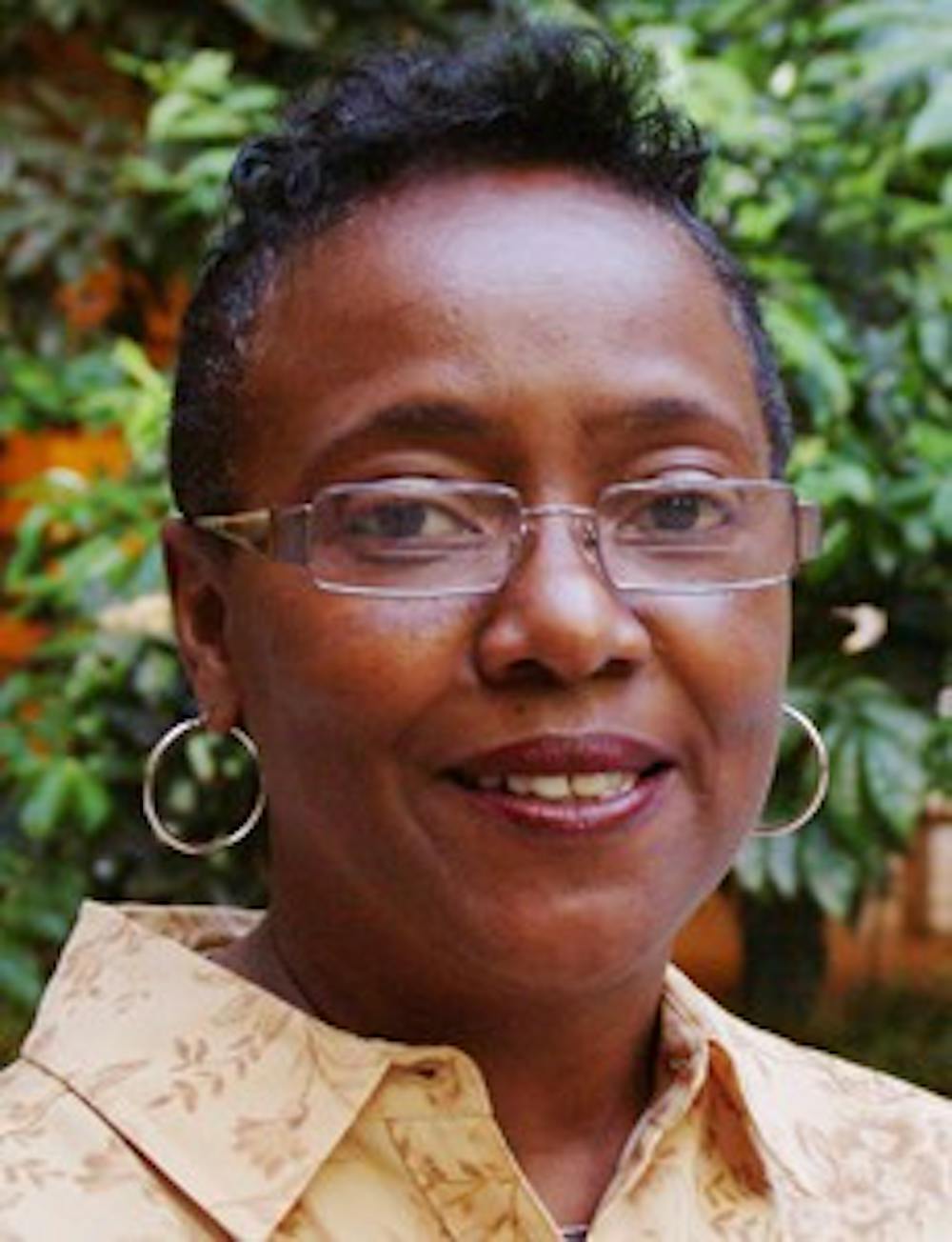An accusation of racism is swirling around the sudden departure of an award-winning ASU adviser.
Maxine Proctor, the director of student academic services and pre-health professions program in the School of Life Sciences, was placed on administrative leave approximately three weeks ago. Though Proctor said she doesn't know why she was put on leave, some in her office said a conflict in which a colleague called Proctor racist could have played a role.
Several weeks ago, Proctor, said she heard rumors that the pre-health advising office was being moved to a centralized office in the College of Liberal Arts and Science, which the School of Life Sciences is under.
Proctor scheduled a meeting with her superior, Robert Page, the director of the Life Sciences school, to discuss the change because she had not heard anything officially.
She said she was "shocked" when she was told at the meeting that she was immediately going to be placed on administrative leave.
"I was told that my contract wasn't being renewed and that, effective immediately, I was being placed on administrative leave," she said, adding that she had had no indication that her position had been in question.
Proctor said she was escorted to her office and asked to pack her things directly following the meeting.
Page did not respond to a voicemail left on his answering machine by The State Press.
Carol Hughes, spokeswoman for the college, responded on behalf of the School of Life Sciences and the College of Liberal Arts and Sciences. In an e-mail statement, Hughes said more information about the decision to place Proctor on leave could not be discussed because "board and University policies provide that personnel matters will be treated in a confidential manner."
"We respect the privacy of our employees," Hughes said in the e-mail. "To discuss a personnel issue would be a violation of that trust."
Staff who worked closely with Proctor said she was an effective and supportive manager.
Phillip Scharf, who was hired by Proctor and will take the lead position in pre-health advising during the transition to CLAS, said Proctor's departure was "very sudden and unexpected."
"She was someone we were all able to turn to," Scharf said. "As a department, we supported Maxine in terms of her being a supervisor that we all enjoyed working for and with."
Bettie Julkes, the academic specialist coordinator of Life Sciences, said she was also confused about why Proctor was not asked to move with the advising department.
"[Proctor] is the one with the most expertise," Julkes said. "She was the one who helped a lot of people get into medical school."
Proctor has been at ASU for eight years and has received awards from ASU and the National Academic Advising Association. She also serves on several national and local advising and minority-affairs boards. A former student, Ryan Childers, said he credits her with his admission to Johns Hopkins University.
Julkes said she believes Proctor's departure may have been related to an office conflict concerning racism that occurred in November 2007.
Julkes said an administrative associate in the office at the time, Alice Garnett, claimed Proctor treated her unfairly.
Julkes wrote in a letter concerning the situation, signed by four other staff members in the advising office, that she had heard that Garnett, who is white, referred to Proctor, who is black, as a racist.
Julkes addressed the letter about Proctor's treatment to Andrew Smith, the associate director of undergraduate programs for Life Sciences. Julkes also provided a copy for The State Press last Thursday.
Garnett did not respond to repeated requests for comment, and Smith said he could not comment about Proctor's departure.
In her statement, Hughes said, "This university does not condone discriminatory actions towards any member of the university community."
The Life Sciences advising office has a mix of ethnicities, including black, Latino and white staff, many of whom were hired by Proctor, Scharf said.
At least three ASU alumni who worked with Proctor have also sent letters and e-mails to the University on behalf of Proctor.
"I think it's a horrible idea to cut off people who have the connections," said Mandy Behbahani, an ASU student who worked with Proctor on medical school applications.
"I liked Maxine because she was sharp and blunt," Behbahani said. "She told you things you might really not want to hear. She didn't sugarcoat things."
But Behbahani said others may have found this trait offensive.
Proctor said she is currently being considered for other jobs within the University.
"I'm applying for any opportunity that will allow me to work with and help students," she said. "That's what I've always done and what I want to do."
Reach the reporter at: indra.ekmanis@asu.edu.




